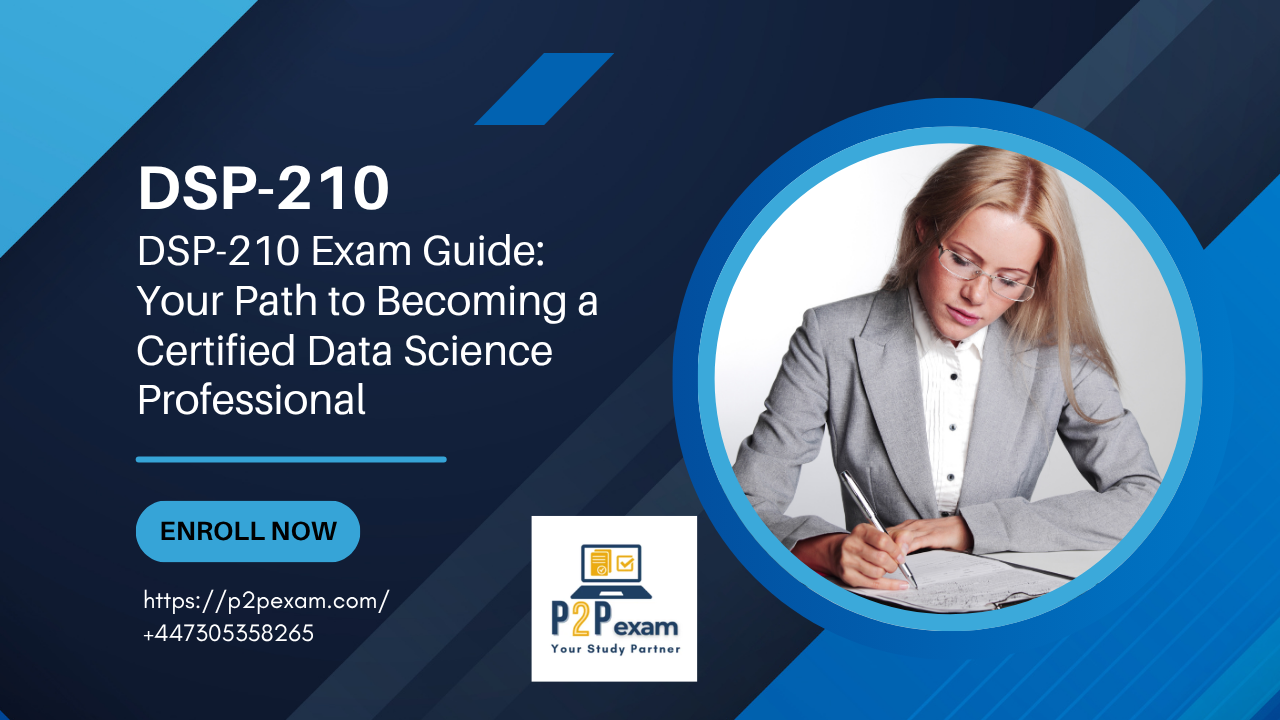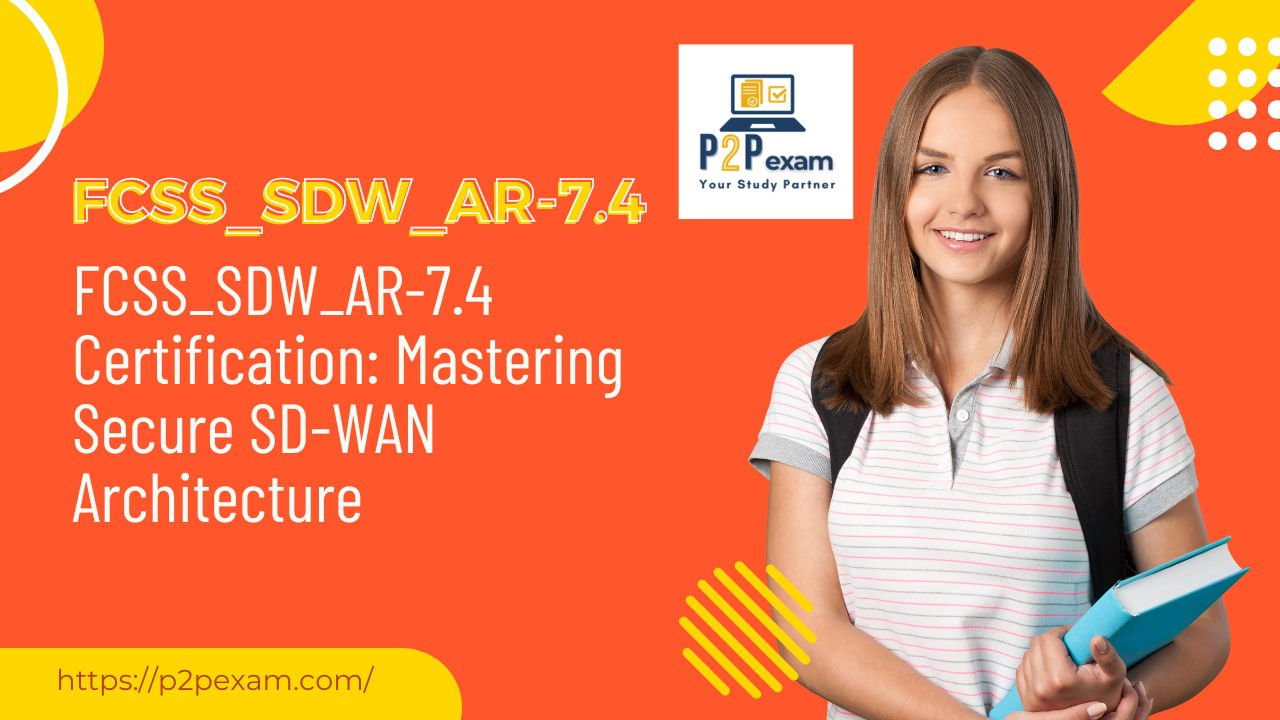DSP-210 Exam Guide: Your Path to Becoming a Certified Data Science Professional

Strong 8k brings an ultra-HD IPTV experience to your living room and your pocket.
Organisations in every industry rely significantly on qualified experts who can convert unstructured data into insightful knowledge in today's data-driven world. A benchmark certification intended to verify your proficiency in data science and machine learning is the DSP-210: Data Science Professional Certification. The main features of the DSP-210 exam, such as its goals, format, study advice, and career advantages, are covered in detail in this article.
What is the DSP-210 Certification?
Professionals who wish to show that they can apply data science tools and techniques to actual business problems are the target audience for the DSP-210 certification. Data analysis, statistics, machine learning, data visualisation, and the foundations of data engineering are just a few of the many subjects it covers. This certification is perfect for:
• Aspiring data scientists
• Data analysts looking to upskill
• Software engineers transitioning to AI/ML roles
• Business intelligence professionals
By passing the DSP-210 exam, candidates prove their ability to handle complex data problems and build intelligent systems that support strategic decision-making.
Exam Overview
Exam Code: DSP-210
Exam Name: Data Science Professional
Format: Multiple choice and scenario-based questions
Duration: 90 minutes
Number of Questions: 60-70
Passing Score: Typically around 70%
Delivery Method: Online proctored or test center
Prerequisites: None, but background in Python, statistics, and basic machine learning is recommended
Core Topics Covered in DSP-210
The DSP-210 exam is designed to test your competency in the following key domains:
1. Data Preparation and Wrangling
• Data cleaning, transformation, and preprocessing
• Handling missing or corrupt data
• Feature engineering and dimensionality reduction
2. Exploratory Data Analysis (EDA)
• Descriptive statistics
• Visualizing distributions, correlations, and outliers
• Hypothesis testing
3. Machine Learning Algorithms
• Supervised and unsupervised learning
• Classification and regression techniques
• Clustering (e.g., k-means, hierarchical)
• Model evaluation (confusion matrix, ROC curve, accuracy, etc.)
4. Model Deployment and Evaluation
• Model tuning and cross-validation
• Deploying models using APIs
• A/B testing and performance monitoring
5. Programming and Tools
• Python programming and libraries (NumPy, pandas, scikit-learn, matplotlib, etc.)
• Jupyter Notebooks
• SQL and database interaction
• Introduction to cloud services (AWS, Azure, or GCP)
Why Should You Take the DSP-210 Exam?
1. Industry Recognition
The DSP-210 certification is recognized by top employers as a credible validation of your data science skills. It enhances your profile and increases your visibility in a competitive job market.
2. Skill Development
Preparing for the exam forces you to master not only the theoretical aspects of data science but also the practical implementation using real datasets and tools.
3. Career Advancement
Certified professionals often see a significant boost in job opportunities and salaries. Whether you’re applying for a data scientist, machine learning engineer, or AI specialist role, DSP-210 adds weight to your résumé.
4. Broad Knowledge Base
Unlike niche certifications, DSP-210 provides a holistic view of the data science pipeline—from data collection to deploying predictive models.
How to Prepare for the DSP-210 Exam
1. Understand the Exam Objectives
Before diving into books and courses, go through the official exam blueprint or syllabus. This will help you focus on what’s important and allocate your study time wisely.
2. Learn by Doing
The best way to master data science is through practice. Use platforms like Kaggle, DataCamp, or Coursera to work on real datasets and complete projects.
3. Master Python and Data Libraries
Python is the backbone of data science. Ensure you are proficient in:
• Data manipulation using pandas
• Numerical computations with NumPy
• Visualization using matplotlib and seaborn
• Machine learning with scikit-learn
4. Take Practice Exams
Mock tests help you get comfortable with the format and timing of the actual exam. They also highlight weak areas for further study.
5. Join Online Communities
Being part of forums like Reddit’s r/datascience, Stack Overflow, or LinkedIn groups allows you to interact with fellow candidates, share resources, and get your doubts clarified.
Recommended Resources
Here are some trusted resources to prepare effectively:
• Books:
o Python for Data Analysis by Wes McKinney
o Hands-On Machine Learning with Scikit-Learn, Keras, and TensorFlow by Aurélien Géron
o Data Science from Scratch by Joel Grus
• Courses:
o IBM Data Science Professional Certificate (Coursera)
o Python for Data Science (edX)
o Machine Learning by Andrew Ng (Coursera)
• Online Platforms:
o Kaggle (for competitions and datasets)
o GitHub (for sharing and exploring projects)
o DataCamp and Udacity
Exam Day Tips
• Get plenty of rest the night before the exam.
• Have a quiet, distraction-free environment if taking the exam online.
• Manage your time wisely during the test—don’t get stuck on one question.
• Read each question carefully and eliminate wrong answers logically.
• Flag tricky questions and return to them if time permits.
________________________________________
What Happens After You Pass?
Once you clear the DSP-210 exam:
• You receive a digital badge and certificate.
• You can add your credential to your LinkedIn, résumé, and email signature.
• You become part of a global community of certified data professionals.
• Employers will take notice of your certified skills, giving you a competitive edge in job applications and promotions.
Certify your data science expertise today by preparing for and passing DSP‑210—get started.
Note: IndiBlogHub features both user-submitted and editorial content. We do not verify third-party contributions. Read our Disclaimer and Privacy Policyfor details.



